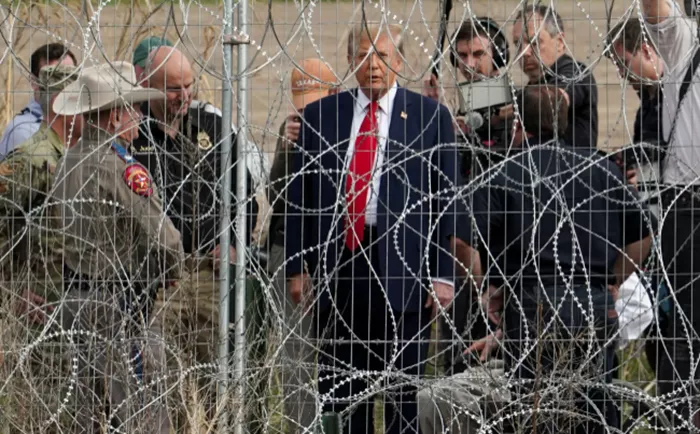President-Elect Donald J. Trump won the White House partly by promising to reduce immigration. His proposals include deporting criminals and, more drastically, carrying out mass deportations. One policy he has focused on is ending Temporary Protected Status (TPS), which allows workers from certain countries to live and work in the U.S. While some of these immigration policies are still being debated, experts warn that they could have serious economic consequences, particularly in industries like construction, housing, and agriculture.
Concerns Over Deportation Impact on the Workforce
Economists and labor specialists are particularly concerned about the potential impact on workers already in the U.S., both documented and undocumented. Staffing agencies, which play a key role in filling labor gaps, have been closely monitoring Trump’s policies.
Jason Leverant, president of AtWork Group, a national staffing agency, said his team analyzed the potential fallout immediately after the election. AtWork serves immigrant-heavy industries like warehouses, industrial work, and agriculture across 39 states. “The labor shortage we’re already facing could get worse,” Leverant said, noting that mass deportations could create over a million job vacancies that would be hard to fill.
Undocumented Workers and Their Role in the U.S. Economy
There are varying estimates on how many undocumented immigrants live and work in the U.S. The Center for American Progress puts the number at about 11.3 million, with 7 million employed. The Pew Research Center estimates the number is closer to 8 million. Many of these undocumented workers are employed in essential industries, such as construction and agriculture.
Chad Prinkey, CEO of Well Built Construction Consulting, noted that undocumented workers make up a significant portion of the workforce in the trades. “We need these workers. We want them to be documented and contributing legally, but we don’t want them to be deported,” Prinkey said.
Deportation Would Exacerbate Labor Shortages
If mass deportations were to occur, staffing agencies would face even greater challenges. Leverant questioned whether available workers could be moved from one sector to another, pointing out that this could simply shift labor shortages without solving them. Staffing agencies like AtWork would likely be in higher demand as employers scramble to fill vacancies.
Increased demand for workers would likely drive up wages, which would have ripple effects throughout the economy, leading to higher prices in stores, including grocery and retail chains. “The pain will be felt in many industries. We will see delays, shortages, and higher costs,” Leverant said.
Skilled Labor and Technology Jobs Could Also Be Affected
The tech industry, which relies heavily on foreign talent, could also suffer from stricter immigration policies. Janeesa Hollingshead, head of expansion at Uber Works, said that restrictions on H-1B visas could limit access to skilled tech workers. “The U.S. tech sector has long depended on immigrant talent to fill critical roles,” Hollingshead explained. A less welcoming immigration policy could further strain the industry.
During Trump’s first presidency, the U.S. Citizenship and Immigration Services saw a rise in denials of H-1B visa petitions. While many denials were later overturned, the uncertainty surrounding the visa process discouraged foreign talent. Hollingshead noted that U.S. companies may be forced to look for tech workers within the U.S. or from underrepresented groups.
Trump’s Deportation Plan: High Costs and Potential Obstacles
At a campaign rally before the election, Trump promised to launch the “largest deportation program in U.S. history” to remove criminals. However, experts warn that carrying out mass deportations would be a complex and costly undertaking. David Leopold, chair of the immigration practice group at the law firm U.B. Greensfelder, noted that deporting 11 million people could cost the U.S. government upwards of $88 billion annually.
Despite the financial challenges, Trump has downplayed concerns about cost. In an interview with NBC News, he argued that the need to remove criminals from the U.S. outweighs the financial burden.
Impact on Construction and Agriculture Sectors
Research from the American Immigration Council (AIC) highlights the risks of mass deportations for industries that rely on undocumented workers. According to AIC, 14% of the U.S. construction workforce is undocumented. A significant loss of these workers could lead to delays in construction projects, making housing more expensive and harder to build.
The agricultural sector could also be hit hard. A large portion of farm workers are undocumented, and deportations could disrupt the food supply, raising food prices. “Losing these workers would harm domestic food production and increase food costs,” said Nan Wu, research director at AIC.
Potential Effects on the Broader Economy
If the U.S. loses such a large portion of its workforce, experts predict the country’s GDP could shrink by up to $1.7 trillion. Some conservative groups, such as American Compass, advocate for a “skills-based immigration policy” that would aim to prevent illegal workers from entering the country while offering temporary work permits to some undocumented immigrants. They also suggest using E-Verify to track employment and impose penalties for violations.
Prinkey’s Outlook on the Future
Despite the dire predictions, Prinkey does not believe mass deportations will become a reality. As a developer, Trump understands the importance of immigrant workers in the construction industry. “A mass deportation would have crippling effects on the economy,” Prinkey said, adding that many sectors, particularly construction, could grind to a halt without this labor force.
The potential for economic disruption from mass deportations is clear, but experts continue to debate whether such a policy is feasible or would be enacted to the extent promised. Regardless, the effects on the U.S. economy and labor market could be profound.
Related topics:
- Immigrant Rights Groups Prepare to Fight Back Against President-Elect Trump’s Policies
- Trump Allies and Private Sector Brace for Widespread Immigrant
- Trump’s Victory Sparks Urgent Focus on Immigration Crackdown


